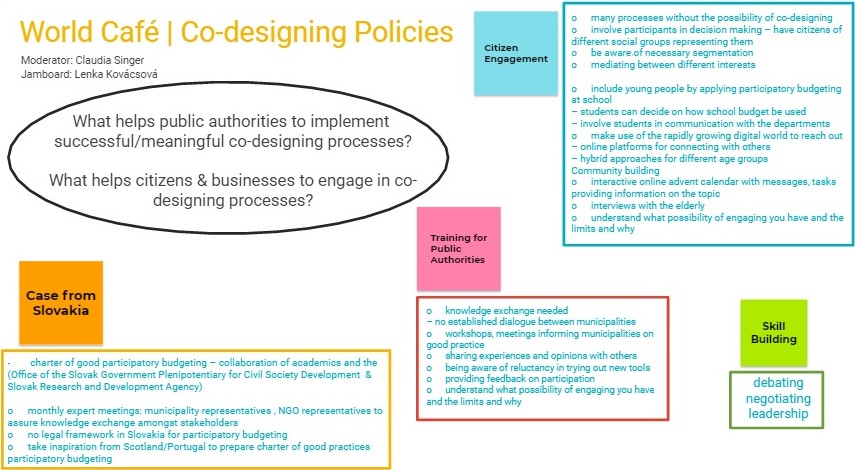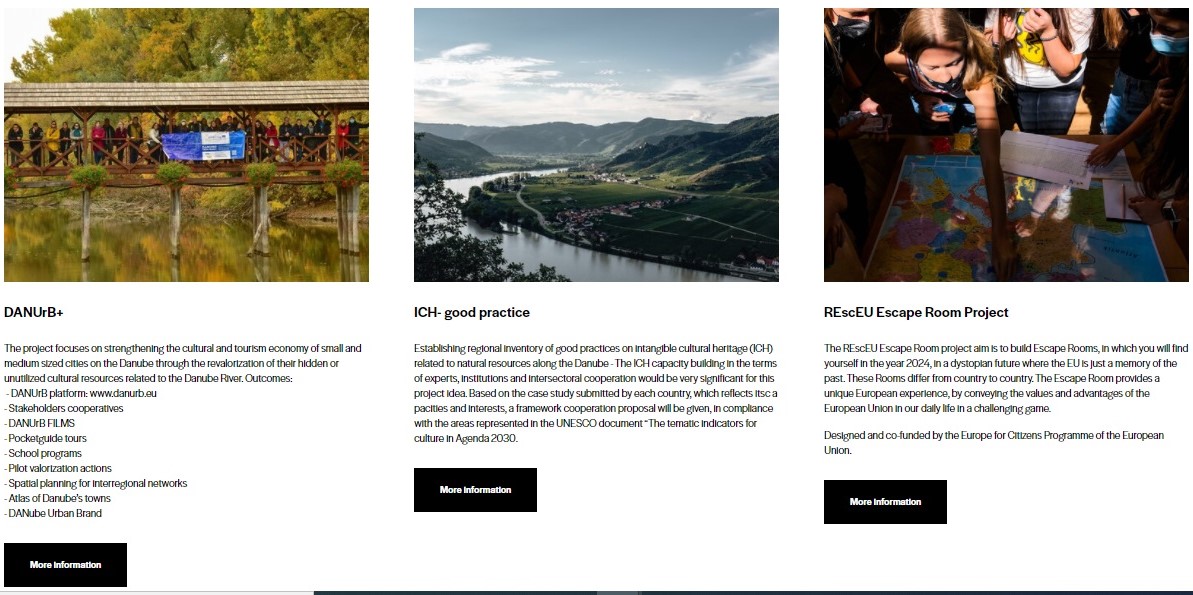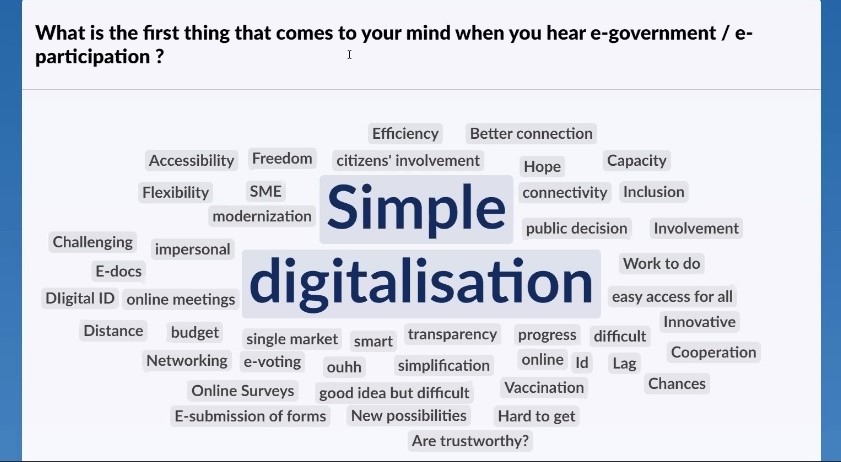DANUrB+ - AS PART OF THE FUTURE PARTICIPATION AND DIGITALIZATION OF THE DANUBE
28-10-2021
 DANUrB+ participated at the “8th Danube Participation Day” (Digitalization & Participation - putting people at the center of the digital transition), an annual platform for stakeholders in the Danube Region for participatory governance in the EU Strategy for the Danube Region (EUSDR), on October 25th and 26th, 2021. It was held online and the organizers from Priority Area 10 “Institutional Capacity and Cooperation” (PA 10) of the EU Danube Strategy and Danube Civil Society Forum (DCSF) invited partners and stakeholders on the live stage, so they can share experiences and discuss the current situation, challenges, and future perspectives of digitalization worldwide and along the Danube Region.
DANUrB+ participated at the “8th Danube Participation Day” (Digitalization & Participation - putting people at the center of the digital transition), an annual platform for stakeholders in the Danube Region for participatory governance in the EU Strategy for the Danube Region (EUSDR), on October 25th and 26th, 2021. It was held online and the organizers from Priority Area 10 “Institutional Capacity and Cooperation” (PA 10) of the EU Danube Strategy and Danube Civil Society Forum (DCSF) invited partners and stakeholders on the live stage, so they can share experiences and discuss the current situation, challenges, and future perspectives of digitalization worldwide and along the Danube Region.
The discussed topics were both presented in a common group of approximately 90 participants from all over Europe, as well as divided into different parallel groups about Co-Designing Policies, Trust in (e)Government & (e)Participation, Accessibility & Digital Skills, A Macro-Regional Vision on Digitalization That Puts People at the Center, etc. It was emphasized that digitalization is the future, no matter if we agree or disagree, so all strategies should be implemented in a way to work for people and make their life easier.
COVID-19 pandemic accelerated the process of digitalization in our daily lives. Digitalization goes beyond internet connection, it is about developing infrastructure and involvement of human resources (education, practice and so on). Technology must put people in the center, it should promote more sustainable society. People need more reliable skills to take new tasks and jobs, so digitalization should be at all levels of education and trainings. Research in 2020 points that less than 40% of the population in Europe has proper digital abilities. A change is mandatory and policy makers should engage with this change (4 aspects: open government; co-designing policies; building trust/security; providing accessibility and trainings). All individuals should be involved in the digital strategy but segmented into different target groups. Especially young people and digital specialists as they can be of enormous help for the integration of unexperienced and senior citizens. Digital tools are developed to help – application for emergency button for older people or for children with special needs, online consultations, platforms for communication and cooperation, etc. Smart cities/villages are great example to build sustainable future. The potential of digitalization in the Danube Region is fundamental (in renewable energy, green infrastructure/green corridors, management of housing, involvement of local societies, use digital tools in culture and tourism, etc.). The new 2022 presidency of the EUSDR in a non-EU country, Ukraine, indicates the responsible plan of the EU Strategy for extending and strengthening the unity and common forces towards the development of the Danube Region.



The organizations, initiatives, and projects that were not included in the panel discussions, had the possibility to share their experience in the World Café Sessions. DANUrB+ project’s activities and initiatives are related to the sustainable development of shrinking cities along the Danube Region and the development of digitalization is considered an important tool. The project was presented by the Communication Manager of National Tourism Cluster “Bulgarian Guide” during the sessions about Co-designing policies and Accessibility & Digital Skills. He confirmed the general opinion that digital strategies should focus on citizens and stakeholders, to ease cooperation, participation, and training/education. One of the most important DANUrB+ outcomes was given as example for the digital imprint of the project – the DANUrB Platform (including the stakeholder cooperatives), which aims to present, raise awareness and visibility, connect and help all stakeholders cooperate and communicate on an international level along the Danube area. The DANUrB International Association and its main purpose was also presented - to coordinate cultural initiatives along the Danube River and to create the quality label of the best practices in the Danube settlements (Danube Urban Brand). The results of these World Café Sessions and an overview of the examples revealed by the participants will be drafted and passed on to the EUSDR Governance stakeholders as well as published to interested stakeholders.
The DANUrB+ project was also exhibited at the “Online Market Place” on the website of the event. It was a chance for every project, initiative, or idea to showcase itself, find suitable partners, look for other successful activities, or just take the advantage of more visibility and promotion. In this way, viewers had the possibility to get familiar with the main focus of the project, its outcomes, and link to the main website for further information.
You can find more about the event on the following link: https://danubeparticipationday.eu/events/8th-danube-participation-day/#about
------------------------------------------------------------------------
Project co-funded by European Union funds (ERDF and IPA).
